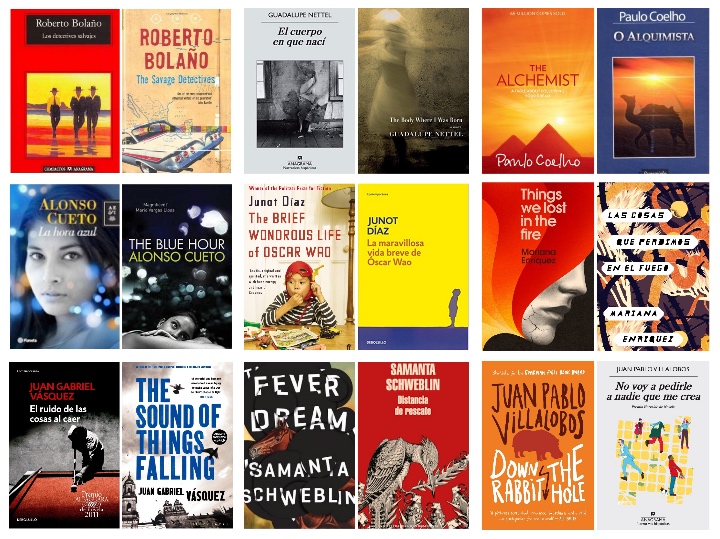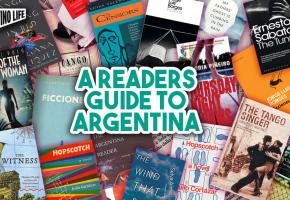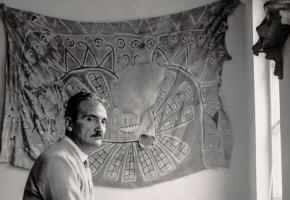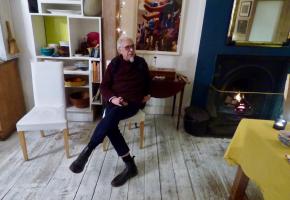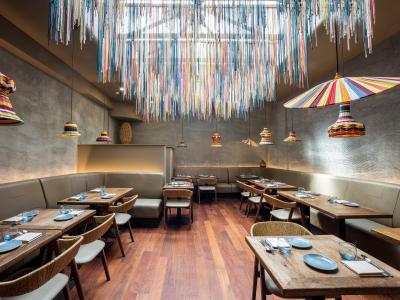1. Discanccia de Rescate (Fever Dream) by Samanta Schweblin
An Ecological dystopia that seems prophetic from a young Argentine writer. A young woman named Amanda lies dying in a rural hospital clinic. A boy named David sits beside her. She’s not his mother. He’s not her child. Together, they tell a haunting story of broken souls, toxins, and the power and desperation of family. One of the freshest new voices to come out of the Spanish language and translated into English for the first time, Samanta Schweblin creates an aura of strange psychological menace and otherworldly reality in this absorbing, unsettling, taut novel. Chosen as one of the 22 best writers in Spanish under the age of 35 by Granta, winner of the prestigious Juan Rulfo Story Prize, Fever Dream is Schweblin’s was first novel and was longlisted for the Man Booker International Prize.
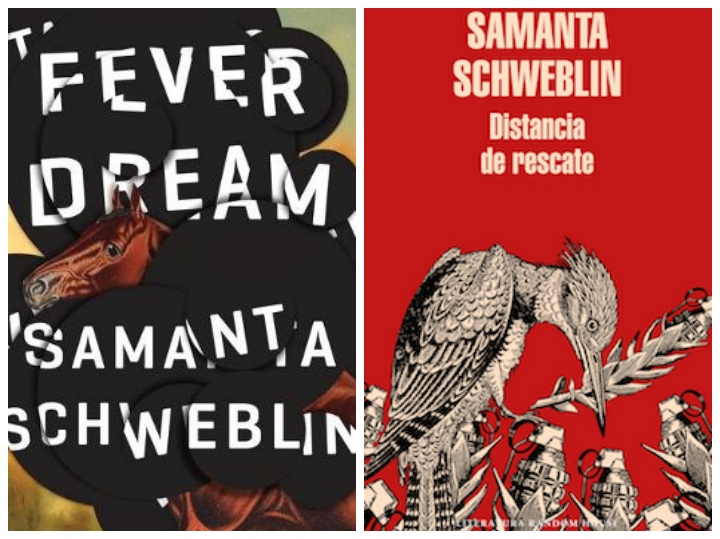
2. No Voy A Pedirle A Nadie Que Me Crea (Down the Rabbit Hole) by Juan Pablo Villalobos
A darkly-comic first novel by this Mexican author is the chronicle of a delirious journey to grant a child's wish. Tochtli lives in a palace. He loves hats, samurai, guillotines, and dictionaries, and what he wants more than anything right now is a new pet for his private zoo: a pygmy hippopotamus from Liberia. But Tochtli is a child whose father is a drug baron on the verge of taking over a powerful cartel, and Tochtli is growing up in a luxury hideout that he shares with hit men, prostitutes, dealers, servants, and the odd corrupt politician or two. Long-listed for The Guardian First Book Award, Down the Rabbit Hole, a masterful and darkly comic first novel, is the chronicle of a delirious journey to grant a child's wish. Please use the sharing tools found via the share button at the top or side of articles. Villalobos, performs an unexpected trick; by dramatically shifting the perspective from which we view the “narco-wars”, it manages to cut through the collective numbness and renew our sense of shock.
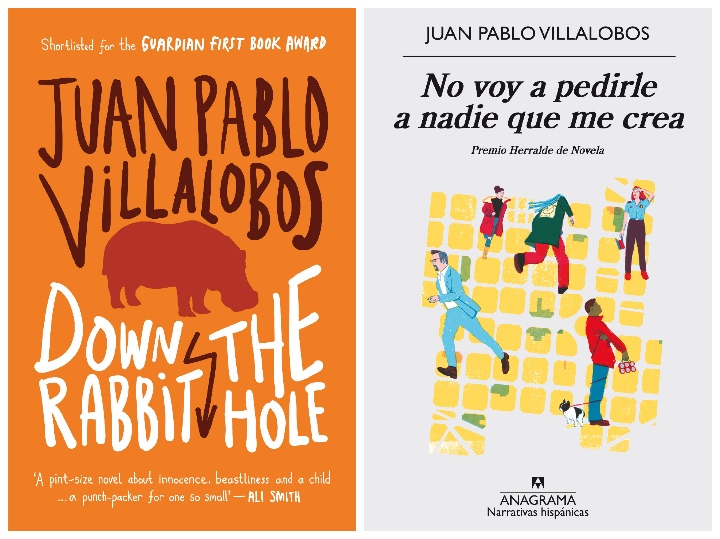
3. El Ruido de las Cosas al Caer (The Sound of Things Falling) by Juan Gabriel Vasquez
Winner of the 2014 International IMPAC DUBLIN Literary Award, this gorgeously wrought, award-winning novel confronts the history of Colombia. In the city of Bogotá, Antonio Yammara reads an article about a hippo that had escaped from a derelict zoo once owned by legendary Colombian drug kingpin Pablo Escobar. The article transports Antonio back to when the war between Escobar’s Medellín cartel and government forces played out violently in Colombia’s streets and in the skies above. Back then, Antonio witnessed a friend’s murder, an event that haunts him still. As he investigates, he discovers the many ways in which his own life and his friend’s family have been shaped by his country’s recent violent past. His journey leads him all the way back to the 1960s and a world on the brink of change: a time before narco-trafficking trapped a whole generation in a living nightmare. “One of the most original new voices of Latin American literature,” according to Nobel Prize winner Mario Vargas Llosa.
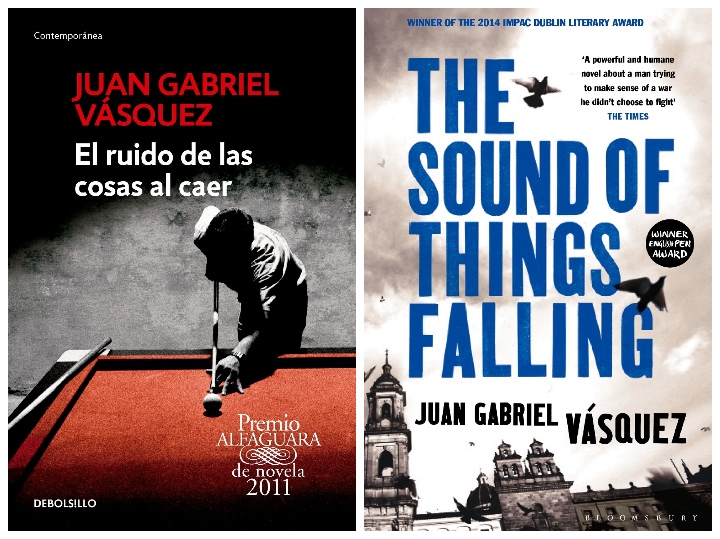 4. Las Cosas que perdimos en el Fuego (Things We Lost in the Fire) BY Mariana Enriquez
4. Las Cosas que perdimos en el Fuego (Things We Lost in the Fire) BY Mariana Enriquez
In these wildly imaginative, devilishly daring tales of the macabre, internationally bestselling author Mariana Enriquez brings contemporary Argentina to vibrant life as a place where shocking inequality, violence, and corruption are the law of the land, while military dictatorship and legions of desaparecidos loom large in the collective memory. In these stories, three young friends distract themselves with drugs and pain in the midst a government-enforced blackout; a girl with nothing to lose steps into an abandoned house and never comes back out; to protest a viral form of domestic violence, a group of women set themselves on fire. Written in hypnotic prose that gives grace to the grotesque, Things We Lost in the Fire is a powerful exploration of what happens when our darkest desires are left to roam unchecked, and signals the arrival of an astonishing and necessary voice in contemporary fiction.
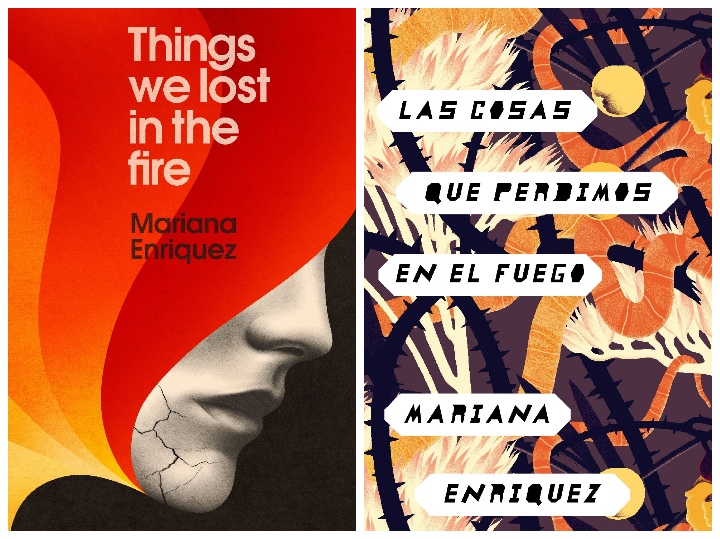 5. Los Detectivos Salvajes (The Savage Detectives) by Roberto Bolano
5. Los Detectivos Salvajes (The Savage Detectives) by Roberto Bolano
A dazzling original, by a Chilean author who died before the first great Latin American novel of the twenty-first century was published. New Year’s Eve, 1975: Arturo Belano and Ulises Lima, founders of the visceral realist movement in poetry, leave Mexico City in a borrowed white Impala. Their quest: to track down the obscure, vanished poet Cesárea Tinajero. A violent showdown in the Sonora desert turns search to flight; twenty years later Belano and Lima are still on the run. The explosive first long work by the enigmatic Chilean author follows Belano and Lima through the eyes of the people whose paths they cross in Central America, Europe, Israel, and West Africa. This chorus includes the muses of visceral realism, the beautiful Font sisters; their father, an architect interned in a Mexico City asylum; a sensitive young follower of Octavio Paz; a foul-mouthed American graduate student; a French girl with a taste for the Marquis de Sade; the great-granddaughter of Leon Trotsky; a Chilean stowaway with a mystical gift for numbers; the anorexic heiress to a Mexican underwear empire; an Argentinian photojournalist in Angola; and assorted hangers-on, detractors, critics, lovers, employers, vagabonds, real-life literary figures, and random acquaintances.
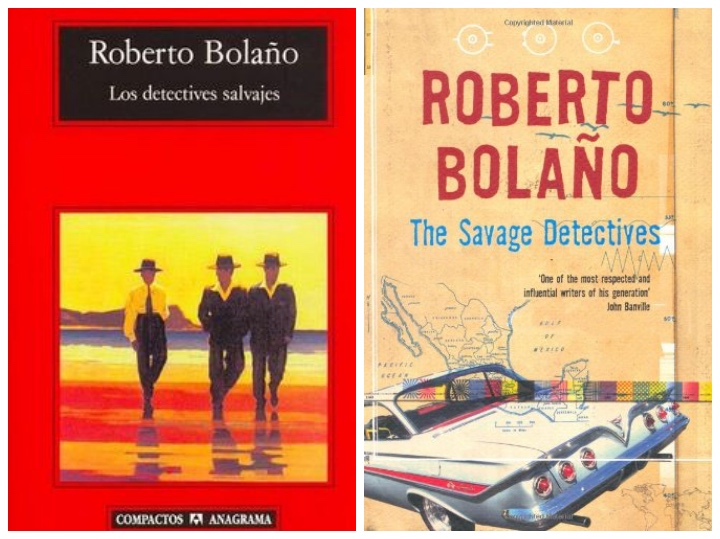
6. The Brief Wondrous Life of Oscar Wao (La breve y maravillosa vida de Óscar Wao) by Junot Diaz
Things have never been easy for Oscar, a sweet but disastrously overweight, lovesick Dominican ghetto nerd. From his home in New Jersey, where he lives with his old-world mother and rebellious sister, Oscar dreams of becoming the Dominican J. R. R. Tolkien and, most of all, of finding love. But he may never get what he wants, thanks to the Fukœ—the curse that has haunted the Oscar's family for generations, dooming them to prison, torture, tragic accidents, and, above all, ill-starred love. Oscar, still waiting for his first kiss, is its most recent victim.
Winner of the 2008 Pulitzer Prize, this book confirmed Dominican born, New Jersey raised Junot Diaz as one of the best and most exciting voices of our time. Written and published in English first, the book's Spanish translator and friend of Diaz, had said before knowning she would be the translator: Pity the poor sucker who has to translate that!...The novel is an exuberant song to living on the hyphen, a mix of languages with a pop culture beat that references comics and science fiction, hip-hop and salsa, its characters possessed with a prodigious capacity for love.
The tumultuous life of Oscar and the history of the family at large, gives us an insight the Dominican-American experience, and, ultimately, the endless human capacity to persevere in the face of heartbreak and loss.
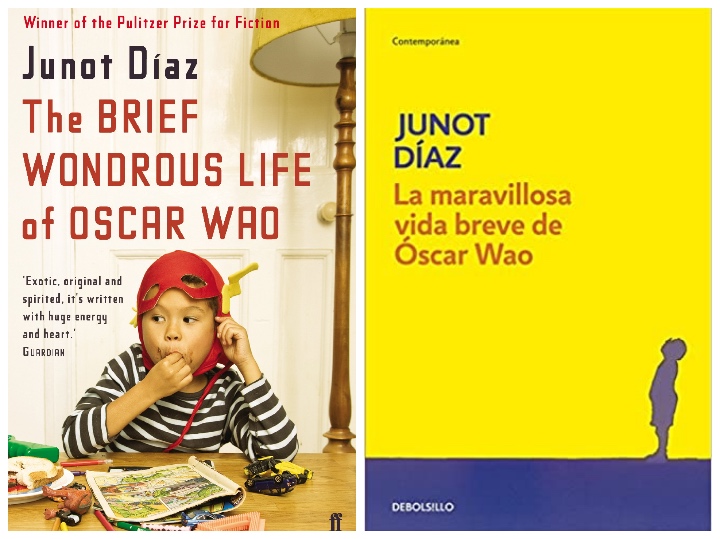
7. La Hora Azul (The Blue Hour) by Alonso Cueto
A stunning, prize-winning novel exploring the aftermath of the Peruvian Civil War, by one of the greatest living South American writers. Adrian Ormache is a prosperous lawyer living in Lima. He has the perfect life: a great career, beautiful wife, two doting and intelligent daughters. But when his mother dies a series of events devastate his entire view of the past, his parents, and his country. Adrian's mother leaves a letter indicating that she was being blackmailed. Confused, Adrian talks to his brother, who tells him that their long dead father Colonel Ormache, who led military operations against the 'Shining Path' guerrillas during the terrible Peruvian Civil War of the 1980's, was not quite the hero Adrian had always considered him to be: he routinely had POWs and civilian women raped, tortured and executed. His mother's blackmailer is revealed to be one of the Colonel's former subordinates. When Adrian confronts him the man gives him the name of the one prisoner whom the Colonel spared and kept as a lover -- Miriam. Adrian becomes obsessed with finding Miriam., opening a cathartic and all-consuming journey that takes him into a country that is a far-cry from the stable, civilised Lima he's used to.
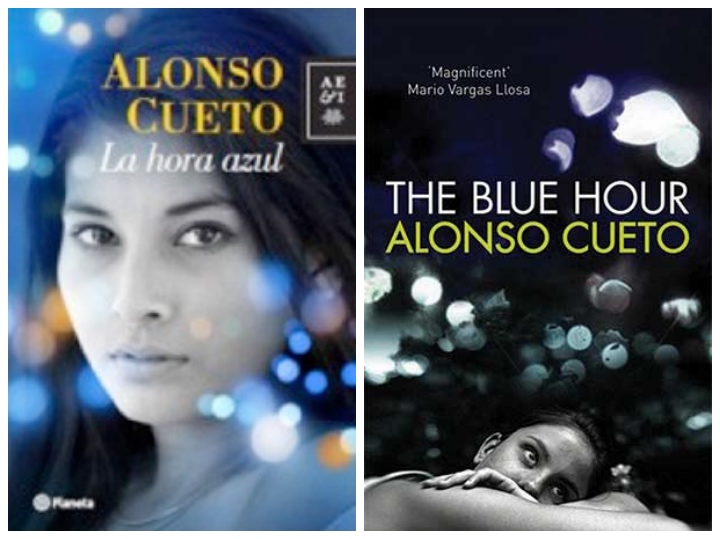
8. O Alquimista (The Alchemist) by Paulo Coelho
Born in Rio de Janeiro in 1947, Coelho has been a prolific lyricist and author. The Alchemist, first published in 1988, flew off the shelves to a readership hungry for a spiritual challenge and Coelho never disappointed. It has the delightful magic of the ’Little Prince’ (Antoine de St Exupery) and this is a book for all ages, youngsters and adults alike. This gentle fable of a young man called Santiago, a shepherd in the hills of Andalucía (The alchemist), takes us on an adventure of infinite beauty and charm about learning to listen to your heart, reading the omens strewn along life's path and, above all, how to follow your dreams. It was and remains in top lists all over the world.
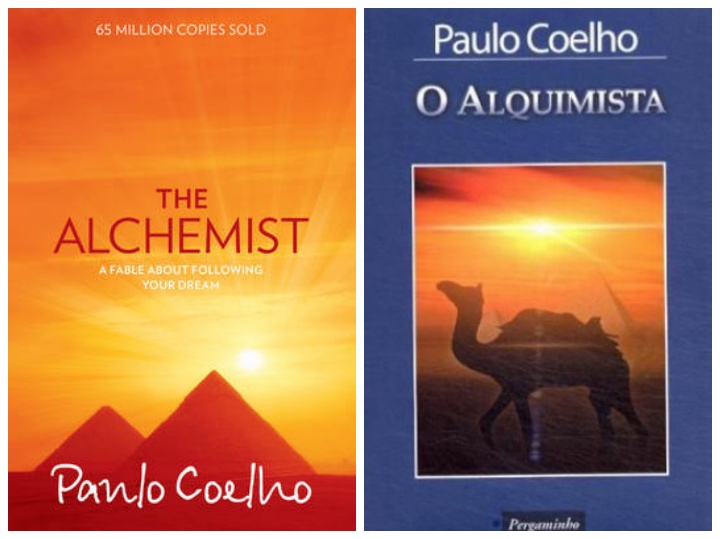
9. ‘No Habrá más Penas ni Olvido’ by Osvaldo Soriano (1978)
Argentine author Soriano, was only 54 years old when he died in 1997 of lung cancer. Never seen without his cigarette or cigar, his death has been a huge loss to the literary world in Argentina. His sharp humour and understanding of how people react to each other and how situations can develop in a provincial community, led to this masterpiece of observation and humour. A left- wing sympathiser, he nevertheless had no illusions about people’s real motives and ‘No habrá mas Penas ni Olvido’ is a true gem. It can be read and re-read time and time again, preferably in Spanish due to some untranslatable slang. It has always remained one of my favourite books that I tap into time and time again. In 1983, the book was made into a film, Funny Dirty Little War, by the renowned Héctor Olivera known for La Patagonia Rebelde, La Noche de los Lapices and La Nona. The film went on to win the Silver Bear in Berlin.
The title of the book refers to a famous tango by Carlos Gardel and Alfredo de la Pera (Mi Buenos Aires Querido). The novel relates the story of the internal battles fought in1974, shortly before Juan Domingo Peron died. Set in the locality of Colonia Vela in the provinces, the fights between left-wing and right- wing factions of the national Peronist movement reveal much about the human condition. It is a powerful reflexion on the political turmoil of the times seen through the keenly observed humour of human foibles and hypocrisies. Another excellent novel by Soriano is “A sus Plantas rendido un León’. Set in 1982 when the war in the Malvinas (Falklands) breaks out, there is a deliberate echo on the other side of the world in a remote fictional country called Bongwutsi, in Africa, where one Argentine Consul decides to fight his own battles against the UK. Funny, entertaining and powerful.
10. El cuerpo en que nací (The Body Where I was Born) by Guadalupe Nettel
Born in 1973 in Mexico City, this author has won awards for her novels and her short stories. In Natural Histories (2014), Nettel composes a mosaic of unforgettable characters: there’s the pregnant woman who spends her days observing how two fishes fight, the bourgeois family whose apartment is taken over by cockroaches or the couple of musicians who share a genital infection. Each tale explores the intersection between animal and human behaviour and how our biological instincts influence our the relationships. The Body Where I was Born (2015) is an autobiographical novel in which the narrator recalls her childhood and an eye anomaly from the couch of a psychoanalyst.
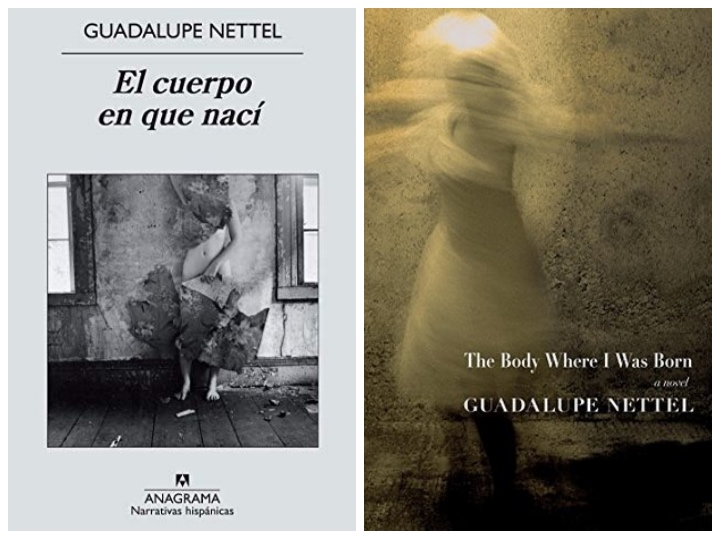
And one for luck...
The Hour of the Star by Clarice Lispector
This consummate final novel, by one of Brazil's most intriguing novelists, may well be her masterpiece. Narrated by the cosmopolitan Rodrigo S.M., this brief, strange, and haunting tale is the story of Macabéa, one of life's unfortunates. Living in the slums of Rio de Janeiro and eking out a poor living as a typist, Macabéa loves movies, Coca-Cola, and her rat of a boyfriend; she would like to be like Marylin Monroe, but she is ugly, underfed, sickly, and unloved. Rodrigo recoils from her wretchedness, and yet he cannot avoid realization that for all her outward misery, Macabéa is inwardly free. She doesn't seem to know how unhappy she should be. Lispector employs her pathetic heroine against her urbane, empty narrator--edge of despair to edge of despair--and, working them like a pair of scissors, she cuts away the reader's preconceived notions about poverty, identity, love, and the art of fiction. In her last novel she takes readers close to the true mystery of life, and leaves us deep in Lispector territory indeed.
Check out our Classic Fiction Reading List


